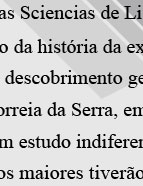

................................
The epistemological shift that sought to transcend traditional Diplomatic History—highlighting the excessively narrow focus on relations between governments, chanceries, and diplomats—toward studying what truly mattered, namely the relations between peoples, was pioneered by Pierre Renouvin. This was embodied in his monumental work Histoire des Relations Internationales (8 vols., 1953–1976) and the programmatic article he published in Revue Historique, titled “L’Histoire contemporaine des relations internationales...” (1954, pp. 233–255). For over twenty years, Renouvin had been developing the notion of "deep forces," linking it with the context of events. Alongside "material forces"—such as geographical conditions, demographic movements, economic and financial interests—he considered the influence of "spiritual forces" or "collective mentalities" on the development of international relations, particularly currents of thought, national sentiment, and nationalisms. His studies and those of his disciples, notably Jean-Baptiste Duroselle, who described and analysed these various "deep forces" in more detail in Introduction à l'histoire des relations internationales (1964), marked the transition from traditional Diplomatic History to the History of International Relations. This work was enthusiastically received in the Annales journal, in a review by Marc Ferro (1965, pp. 175–178), which highlighted the importance of Raymond Aron’s contributions to the ongoing renewal in this field.
Duroselle's contribution was crucial insofar as he studied the "statesman," which led him to consider the influence of "deep forces" in the political decision-making process, considering the position the decision-maker occupies in society, the quality of their education, the choice of their advisors, their social networks, and the circumstances and environment of the moment. In Tout empire périra (1981), he accounted for the progress made, which was essentially the result of an extensive interdisciplinary survey, especially reflecting the most recent contributions of Anglo-Saxon political science.
The study of international relations involves not only foreign policy but also private relationships. In other words, the evolution of "deep forces," should be observed over the long term. With this concept, in the sense of what is collective and enduring, a formula was found capable of reconciling structural history with merely factual history, the "old" diplomatic history. In essence, by considering the contributions of economic history, social history, and the history of mentalities, these historians embraced the core of the Annales revolution without neglecting political history or underestimating the weight of events or the role of the individual.
